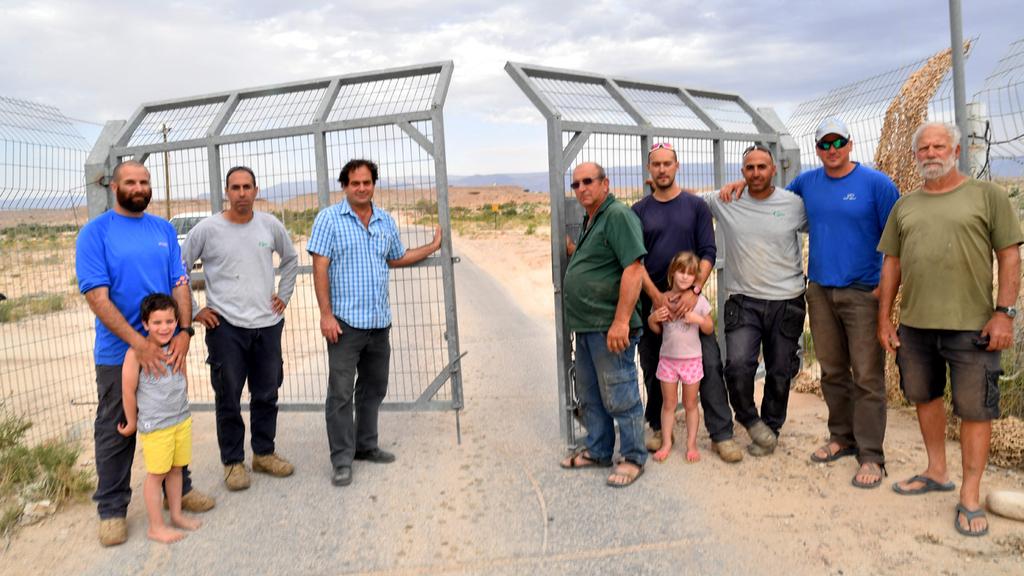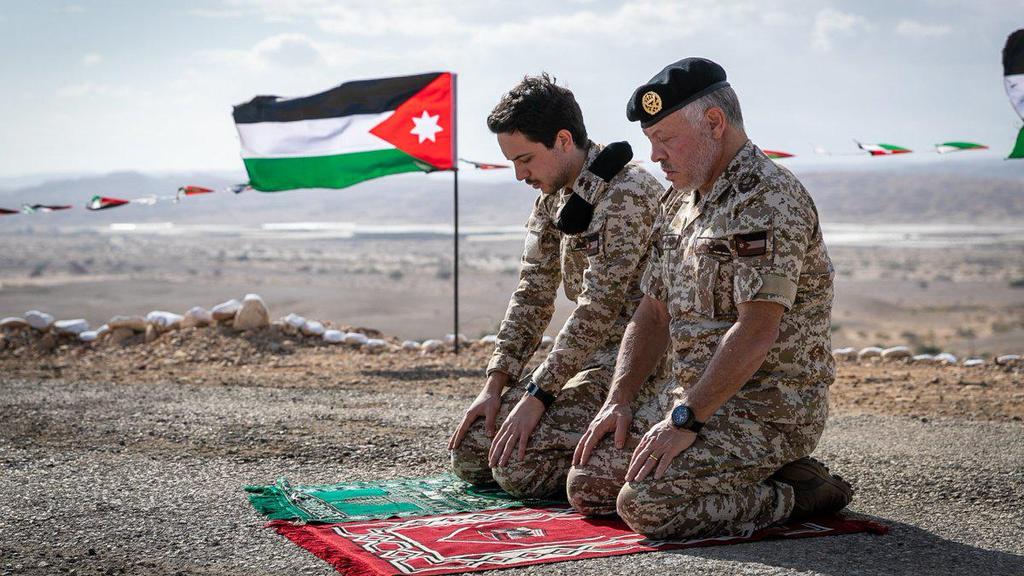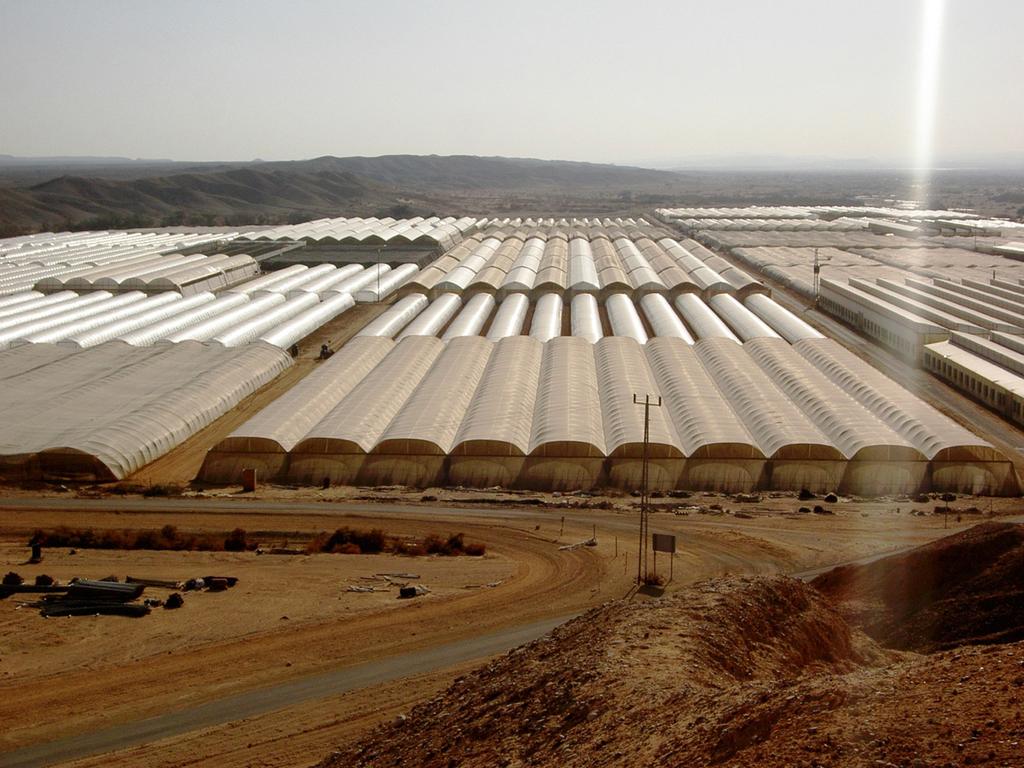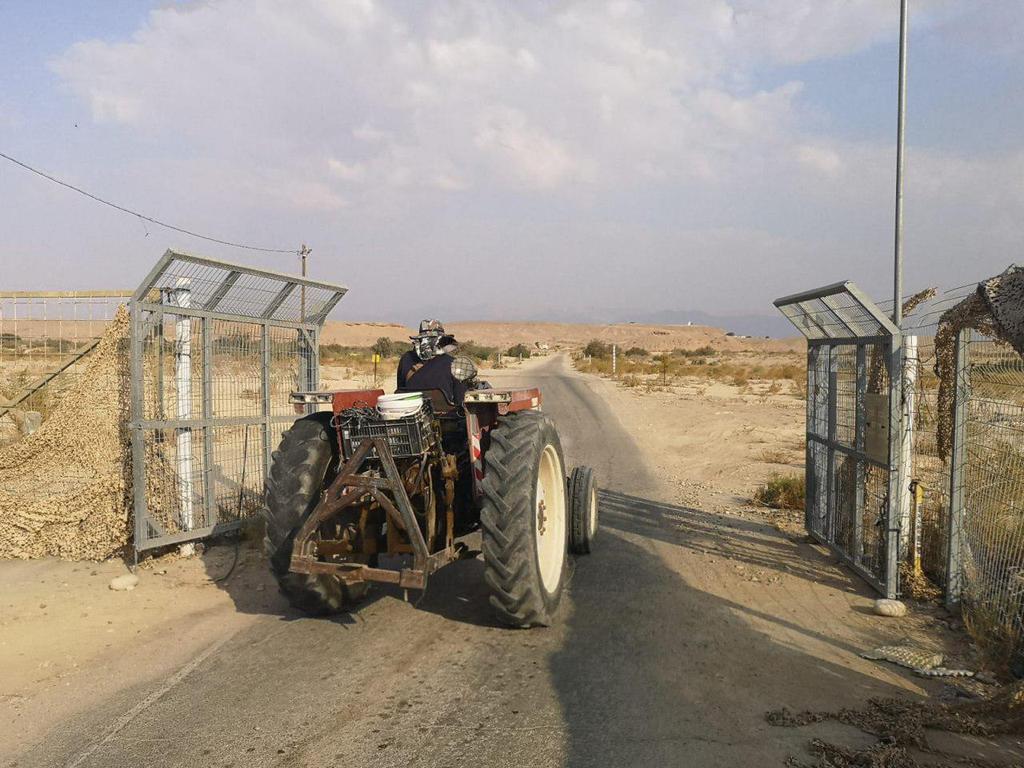Getting your Trinity Audio player ready...
After decades of cultivating the land, farmers in southern Israel have this week watched in dismay as the country’s 36-year lease on their fields expired and the area returned to Jordanian control.
The farmers of Moshav Tzofar built their livelihood on that soil and are now left with nothing.
4 View gallery


Israeli farmers stand at the gate to the land in Tzofar reclaimed by Jordan
(Photo: Haim Horenstein)
Among them is Erez Gibori, who has been growing crops on that land in the Arava region for the past 13 years.
“I will wake up in the morning, look at the sky, drink my coffee, and start to deliberate what comes next,” says Gibori.
“If I don't find a solution quickly we might end up moving away from the Arava, and even though I cannot fathom such a thing, we might not have a choice.”
Gibori is not alone. Another 30 families are also affected and have essentially been left without a source of livelihood.
On October 2018, Jordan's King Abdullah declared the land, which was “leased” to Israel after the 1994 peace agreement, would return to Jordanian hands, forcing Israeli farmers to say goodbye to all they had built.
“It is exceedingly difficult,” says Gibori. “It’s hard for us since the reasoning behind such a move was inadequate. Israel could have overcome this hurdle, but apparently it was not important enough in the eyes of the decision makers.”
“It is very painful to vacate a plot that has been in operation for so many years,” says Eyal Blum, the head of the Central Arava Regional Council.
It is not only having to dismantle their life's work that poses a challenge, the farmers must also contend with a sea of bureaucracy from the state, which has so far only transferred part of their promised aid package of NIS 20 million.
Blum says that as it was the state that sent the farmers to work the land, “the state must now take responsibility for the farmers who were evacuated from the Jordanian territory.”
“The government has helped us by advancing a budget that will allow us to cultivate an alternative plot," he says. "I call on Prime Minister Benjamin Netanyahu to finish transferring the budget we need to do so.”
The Prime Minister's Office says its acting director-general Ronen Peretz "approved a budget with the Ministry of Agriculture and Rural Development that will allow the Tzofar farmers to cultivate an alternative plot of land. The guidelines were formed in January in line with the government's decision.”
And according to Gibori, it was Keren Kayemeth LeIsrael-Jewish National Fund, which oversees much of Israel's agricultural and park lands, that delayed them relocating to an alternative plot - effectively rendering 2021 lost to the farmers.
“The Prime Minister's Office did a lot to help us,” he says. “It was KKL-JNF that put up various obstacles in our efforts to cultivate a new area, due to foreign incentives and political issues with the government."
These obstacles delayed the move to a new area and lost them precious time, Gibori says.
“If we had started to cultivate the land around September, we could have started in the next agricultural year,” he says.
KKL-JNF, however, says the delay is the fault of the Finance Ministry, which held up the budget.
"KKL-JNF is working for the benefit of farmers and the development of agriculture, and will continue to do so,” the organization said.
KKL-JNF says it will start its work on the land after the government transfers the budget.
“We believe the new government... will allow JNF to resume its important work," it said.




